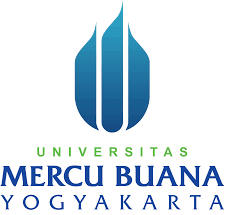Gender Equality in an Era of Crisis: Adaptation and Innovation Strategies for the Future
DOI:
https://doi.org/10.55927/fjmr.v4i10.536Keywords:
Gender Equality, Crisis Era, Adaptation Strategies, Innovation, FutureAbstract
This study aims to analyze how crises affect gender relations and identify adaptation and innovation strategies developed by individuals and communities in maintaining and strengthening equality in various sectors of life. The research approach uses mixed methods with a sequential explanatory design, starting with a survey of 80 male and female respondents of productive age in Denpasar City who were affected by the crisis, then continued with in-depth interviews with 8 key resource persons consisting of workers, business actors, community activists, and policy makers. Quantitative data is analyzed in a simple descriptive and inferential manner, while qualitative data is analyzed thematically to explore the meaning, adaptive strategies, and dynamics of innovation in depth. The results show that the crisis has widened the burden of gender roles, reinforcing inequalities in economic access and career opportunities, but at the same time driving the emergence of social innovation, community solidarity, and a more equal transformation of domestic roles. This study concludes that community-based adaptation strategies and social innovation are key in strengthening gender equality in times of crisis, while making an important contribution to the development of social change theories and policy formulation that is more responsive to gender equality.
References
Alon, T., Doepke, M., Olmstead-Rumsey, J., & Tertilt, M. (2020). The impact of COVID-19 on gender equality. The Quarterly Journal of Economics, 135(3), 1107–1144. https://doi.org/10.1093/qje/qjaa062
Andrew, A., Cattan, S., Dias, M. C., Farquharson, C., Kraftman, L., Krutikova, S., & Sevilla, A. (2022). How are mothers and fathers balancing work and family under lockdown? Gender, Work & Organization, 29(1), 226–247. https://doi.org/10.1111/gwao.12674
Azcona, G., Bhatt, A., Love, K., & Seck, P. (2020). From insights to action: Gender equality in the wake of COVID-19. UN Women. https://www.unwomen.org
Baird, S., de Hoop, T., Özler, B., & Woolcock, M. (2022). Gender-based violence and economic crises: Lessons from the pandemic. World Development, 152, 105799. https://doi.org/10.1016/j.worlddev.2021.105799
BPS Bali. (2023). Bali in Figures 2023. Badan Pusat Statistik Provinsi Bali. https://bali.bps.go.id
BPS Bali Province. (2024). Bali in Figures 2024. Badan Pusat Statistik Provinsi Bali. https://bali.bps.go.id
Campbell, S., Greenwood, M., Prior, S., Shearer, T., Walkem, K., Young, S., Bywaters, D., & Walker, K. (2023). Purposive sampling: Complex or simple? Research case examples. Journal of Research in Nursing, 28(2), 123–134. https://doi.org/10.1177/17449871211000913
Creswell, J. W., & Plano Clark, V. L. (2021). Designing and conducting mixed methods research (3rd ed.). SAGE Publications.
Fetters, M. D. (2020). The mixed methods research workbook. SAGE Publications.
Fleming, P. J., Agnew, A., & Fenwick, M. (2023). Community-based resilience and gender equality in crisis response. Social Science & Medicine, 313, 115566. https://doi.org/10.1016/j.socscimed.2022.115566
Fraser, N. (2022). Cannibal capitalism: How our system is devouring democracy, care, and the planet—and what we can do about it. Verso.
Hapsari, I. (2023). Patriarchal norms and gender role persistence in Indonesia. Journal of Southeast Asian Studies, 54(2), 245–264. https://doi.org/10.1017/S002246342300015X
International Labour Organization (ILO). (2021). World employment and social outlook 2021: The role of digital labor platforms in transforming the world of work. ILO. https://www.ilo.org
International Labour Organization (ILO). (2022). The gendered impacts of the COVID-19 pandemic on labour markets. ILO. https://www.ilo.org
Kabeer, N. (2021). The feminization of poverty revisited: Globalisation and women’s vulnerability. Feminist Economics, 27(4), 1–28. https://doi.org/10.1080/13545701.2021.1927043
Kvale, S., & Brinkmann, S. (2021). InterViews: Learning the craft of qualitative research interviewing (4th ed.). SAGE Publications.
Kwon, S. (2023). Gender productivity gap in academia during COVID-19. Research Policy, 52(2), 104650. https://doi.org/10.1016/j.respol.2022.104650
Manolova, T., Brush, C., Edelman, L., & Elam, A. (2020). Pivoting in response to COVID-19: A study of women entrepreneurs. Journal of Business Venturing Insights, 13, e00169. https://doi.org/10.1016/j.jbvi.2020.e00169
Nugroho, H., Santosa, B., & Rahmawati, A. (2022). Gendered impacts of the COVID-19 pandemic on informal workers in Indonesia. Asian Journal of Social Science, 50(1), 47–68. https://doi.org/10.1163/15685314-bja10055
Organisation for Economic Co-operation and Development (OECD). (2023). Gender equality at a turning point: A roadmap for stronger societies. OECD Publishing. https://doi.org/10.1787/9789264315316-en
Palinkas, L. A., Horwitz, S. M., Green, C. A., Wisdom, J. P., Duan, N., & Hoagwood, K. (2021). Purposeful sampling for qualitative data collection and analysis in mixed method implementation research. Administration and Policy in Mental Health and Mental Health Services Research, 48(4), 533–544. https://doi.org/10.1007/s10488-021-01148-5
Putnam, R. D. (2020). The upswing: How America came together a century ago and how we can do it again. Simon & Schuster.
Purwanta, E., & Putri, N. P. (2022). Gender inequality trends in Indonesia: Analysis of the gender inequality index. Indonesian Journal of Gender Studies, 7(1), 23–37. https://doi.org/10.21009/ijgs.071.03
Rahayu, D. (2023). Barriers to digitalization for women entrepreneurs in Southeast Asia. Asian Economic Journal, 37(2), 156–175. https://doi.org/10.1111/asej.12345
Roels, J., Basu, R., & Qureshi, S. (2021). Community networks and adaptive capacity in crisis response. Development in Practice, 31(7), 854–867. https://doi.org/10.1080/09614524.2021.1947560
Sánchez, A., Bianchi, F., & Cukier, S. (2021). Gender roles and unpaid care work during the COVID-19 pandemic. Social Politics, 28(4), 789–812. https://doi.org/10.1093/sp/jxab038
Santos, J. (2023). Digital transformation of micro-enterprises in the post-pandemic era. Small Business Economics, 61(2), 433–451. https://doi.org/10.1007/s11187-023-00799-0
Sevilla, A., & Smith, S. (2020). Baby steps: The gender division of childcare during the COVID-19 pandemic. Oxford Review of Economic Policy, 36(S1), S169–S186. https://doi.org/10.1093/oxrep/graa027
UN Women. (2020). Progress of the world’s women 2020: Families in a changing world. United Nations. https://www.unwomen.org
UN Women. (2021). Measuring the shadow pandemic: Violence against women during COVID-19. United Nations. https://www.unwomen.org
UN Women. (2022). Gender-responsive recovery policies and strategies. United Nations. https://www.unwomen.org
Walcott, K., Myers, J., & Dyer, L. (2023). Grassroots responses to crisis: Gendered community resilience. Community Development Journal, 58(1), 98–117. https://doi.org/10.1093/cdj/bsac019
West, C., & Zimmerman, D. H. (2020). Doing gender: Revisiting gender theory in contemporary society. Gender & Society, 34(4), 531–554. https://doi.org/10.1177/0891243220934412
World Bank. (2021). Gender dimensions of the COVID-19 pandemic. World Bank. https://www.worldbank
World Bank. (2023). Women, business and the law 2023. World Bank. https://www.worldbank
Yavorsky, J. E., Qian, Y., & Sargent, A. C. (2021). The gendered pandemic: The implications of COVID-19 for work and family. Sociology Compass, 15(6), e12881. https://doi.org/10.1111/soc4.12881
Published
Issue
Section
License
Copyright (c) 2025 Gede Wirata, I Wayan Astawa, Sri Sulandari, Misiyah Misiyah

This work is licensed under a Creative Commons Attribution 4.0 International License.

































